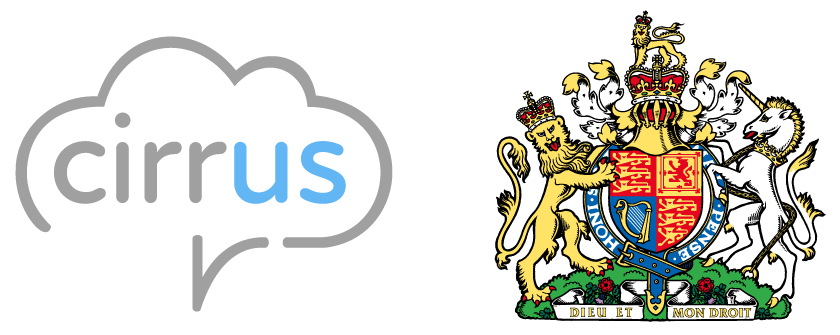
Cirrus Modern Slavery and Human Trafficking Policy
Cirrus is committed to the highest level of ethical standards and sound governance arrangements and sets high standards of impartiality, integrity and objectivity in relation to the stewardship of public funds and the management of its activities.
Cirrus adopts zero tolerance to modern slavery and human trafficking and all forms of corruption and bribery directly and indirectly associated with these criminal acts.
We fully support the government’s objectives to eradicate modern slavery and human trafficking.
Our annual statement will provide information to supplement this policy, including details of our activities and supply chains and actions we are taking to support government.
We call upon all organisations we engage with to influence their global supply chains by improving transparency and accountability; and together we can help the government eradicate the injustice and brutality of modern slavery and human trafficking.
Jason Roos – CEO.
Statement Introduction
This statement is made pursuant to section 54(1) of the Modern Slavery Act 2015.
We review our performance against the regulatory requirements annually and engage with a number of private and public sector organisations in pursuit of our investment, procurement and land disposal activities.
Our activities are usually undertaken at arms-length and take place principally in the United Kingdom.
We undertake activities by partnering with third party Data Centres and where appropriate we will request and check their accreditation details.
We have voluntarily produced this statement regardless of our turnover being below the threshold mandated by the Modern Slavery Act (currently £36m).
Management Responsibility and General Awareness
We have:
- Reported progress to our Executive Management Team and our Board.
- Reconfirmed management responsibility for this policy and statement and received unanimous endorsement from our Executive Management Team and our Board.
- Raised awareness of this published statement and the Modern Slavery Act by notifying organisations in our Frameworks, Delivery Partnerships and other companies with which we regularly engage.
Risk Assessment
We have:
- Completed a review of this policy and statement against our activities to establish whether the approach we have taken follows emerging best practice by:
- Assessing and interpreting any recent or emerging case law and best practice; and
- Benchmarking our activities against statements and action plans undertaken by similar public and private organisations.
- Re-evaluating the risk of non-compliance
- Reconfirmed that our primary risk is an association with a Delivery Partner, Framework participant or company with an ambiguous or non-compliant supply chain.
Additional Risk Mitigation
We have:
- Introduced new processes and procedures in relation to procurement and due diligence, as outlined later in this statement.
- Confirmed the applicability and enforceability of clauses and conditions included in our legal agreements and contracts.
Supply Chain and Business Due Diligence
Scope of our Procurement Activities
- Our procurement activities take place in England; and our contractors and suppliers are predominantly UK and EU based.
- We typically host minimal numbers of competitive procurements annually.
- In common with many organisations, our employees occasionally stay in UK hotels when conducting business away from the office. We note that the hotel and hospitality trade recognise the risk of modern slavery within their sector and a Stop Slavery Hotel Industry Network is being developed by the industry.
Procurement and Tender Process Improvements
- Existing tender documentation includes the mandatory exclusion of any bidder who has been convicted of an offence under the Modern Slavery Act 2015.
- We anticipate that the UK’s departure from the EU may result in some changes to the way we promote procurement opportunities within the UK and the remaining Member States; however, the process improvements described above are likely to continue for the next few years.
Expectation and Encouragement
- We expect all Delivery Partners, organisations and other companies we engage with to ensure their goods, materials and labour-related supply chains:
- Fully comply with the Modern Slavery Act 2015; and are
- Transparent, accountable and auditable; and are
- Free from ethical ambiguities.
Public Reporting of Non-Compliance
Cirrus Supply Chain
Individuals with evidence of non-compliance with the Modern Slavery Act in connection with Cirrus supply chains or businesses we engage with are encouraged to report their concerns to the Cirrus CEO or use the national reporting service below.
Other Supply Chain
We advertise to stakeholders If they hold information that could lead to the identification, discovery and recovery of victims in the UK, they can contact the Modern Slavery Helpline on 08000 121700.
Management Responsibility and General Awareness
We will:
- Report progress to our Executive Management Team and our Board.
- Continue to raise awareness of this published statement by re-notifying organisations in our Frameworks, Delivery Partnerships and other companies with which we regularly engage.
- Remind employees of our obligations under the Act.
Further Risk Assessment
We will:
- Undertake a within-year review of this policy against our activities to establish whether the approach we have taken remains proportionate and appropriate by:
- Assessing and interpreting any recent or emerging case law and best practice; and
- Benchmarking our activities against statements and action plans undertaken by similar public and private organisations.
- Working with our Framework and delivery partners to ensure escalation and notification of suspicious activity.
Ongoing Risk Mitigation
We will:
- Act promptly where a compliance breach has been identified or flagged.
- Continue to feed-back lessons learnt into the compliance risk management process.

